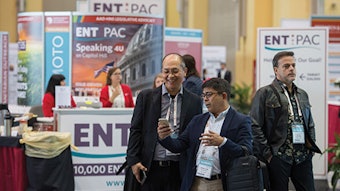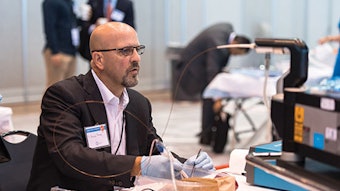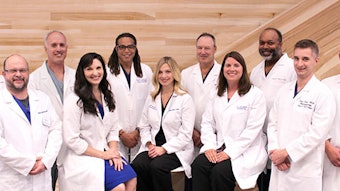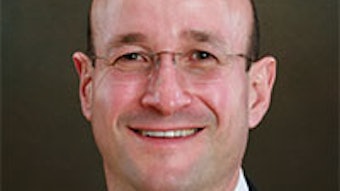The future of our specialty
Our Annual Meeting & OTO Experience is fast approaching, and there are special opportunities you won’t want to miss.
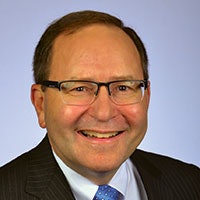 James C. Denneny III, MD
James C. Denneny III, MD
AAO-HNS/F EVP/CEO
One of the ongoing concerns in otolaryngology is maintaining and expanding the talented, diverse applicant pool applying to our residency training programs. We have enjoyed an outstanding cohort of medical students who chose otolaryngology as their preferred field of practice. But the last several years have seen a decline in the number of applications. While there are many factors contributing to this trend, we feel that we can generate significant exposure and interest using a new program we will be rolling out through our Membership Business Unit in conjunction with the Board of Governors (BOG). This program will be based on personal interaction and observerships with practicing otolaryngologists across the country. We will begin at the high school level and extend this through college and medical school training. Our initial research into this type of program has shown significant interest, particularly at the high school level. I still vividly remember such an opportunity that I had while in high school in Oklahoma City with Jack Hough, MD, a world-renowned stapes surgeon. The BOG will help us identify otolaryngologists willing to participate in this program through their state and local societies. We hope to have this up and running this fall.
On a similar note, I had the opportunity at a recent American Society of Association Executives meeting to hear a fascinating presentation about Generation Z, given by a 16-year-old entrepreneur. Some of the information presented was quite enlightening, and in my opinion, very encouraging as related to the future of medicine. Gen Z represents those born between 1996 and 2009. It is estimated that by 2020 they will represent 36 percent of the workforce. The speaker described four major characteristics that can guide future interaction with these individuals. They are very competitive. They do not value “participation trophies,” they like instant gratification, and financial security is very important. They are a connected generation that values face-to-face authenticity and honesty paired with online engagement. They value Snapchat and Instagram more than emails and texting. They favor visual communication more than just words and, surprising to me, shop brick-and-mortar stores two-thirds of the time because they like to see the product. They are also creative, as seen by the multitude of YouTube productions. Sixty percent want to own their own business and 14 percent already do. Finally, they value the ability to coexist, favoring student memberships, real-world learning, and mentorship. They prefer to learn by doing, both online and in real-life experience, and they will pursue leadership opportunities. These characteristics should make a program such as the one detailed above very popular with Gen Z students.
This Bulletin features a separate article expressing my thoughts on the ongoing transition in quality and payment, specifically highlighting my view that private practice can not only survive, but thrive through this evolution and into the subsequent payment model. We also have an invited column solicited through the Large Group Forum by Eugene G. Brown III, MD, detailing his thoughts from the perspective of a successful private practice otolaryngologist.
As you are aware, CMS released its proposed rule for 2019 Medicare payments on July 12. The entire report is over 1,500 pages long, and we are in the process of analyzing those items that will affect otolaryngology and making comments on them. There are several policy and payment proposals that would significantly affect the day-to-day practice of otolaryngology. This was followed by the proposed Outpatient Prospective Payment System/ASC rule, which was only 761 pages. You can rest assured that we will represent the best interests of our patients and members to CMS in our response.
